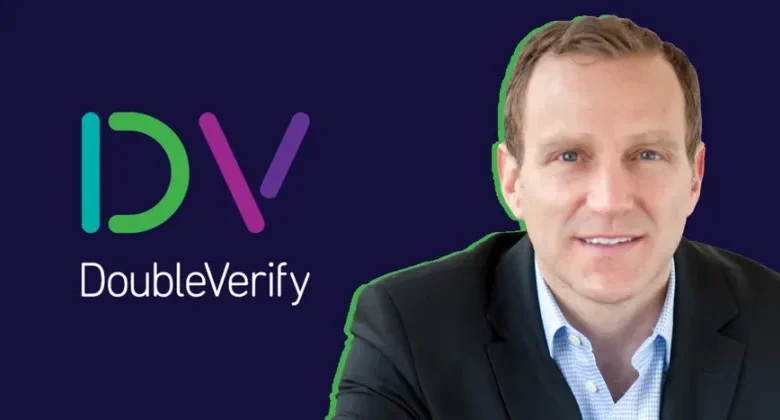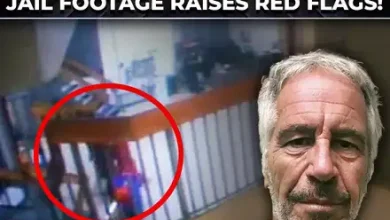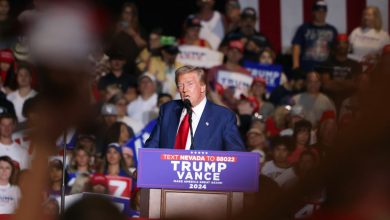DV) Under Federal Investigation? Conflicts Of Interest, Masked URLs, And Bot Detection In Focus

Ad tech firm DoubleVerify (Nasdaq: DV), which provides verification and fraud detection services for digital ads, is now facing increased scrutiny amid allegations that could lead to a possible federal investigation. At the center of the controversy: potential conflicts of interest, questions about the accuracy of its bot detection, masked URLs, and concerns over transparency.
DoubleVerify was founded in 2008 by Alex Liverant and Oren Netzer. The company is based in New York City and specializes in digital media verification and advertising technology. Mark Zagorski is the CEO of DoubleVerify. He was hired in 2020 after DoubleVerify’s former CEO, Wayne Gattinella, resigned following a New York Post investigative article linked him to an alleged extramarital relationship with a woman, Lara Prychodko, who was later found dead in 2018, TechCrunch reported in an article entitled “DoubleVerify names adtech exec Mark Zagorski as new CEO.”
Prychodko fell 27 stories down a 15X18 trash chute, according to former New York City Chief Medical Examiner Michael Baden, NBC News reported in an article entitled “Wrongful death lawsuit filed 5 years after Lara Prychodko was found dead at the bottom of a Manhattan trash chute.”
After the tragic death of Prychodko, Gattinella was pushed out at DoubleVerify, making room for the quick hire of Zagorski. To this day, Prychodko’s father believes she was murdered and tracking software was put on her computer.
The tragedy also made way for Zagorski to come on board at DoubleVerify. In one of his roles prior to DoubleVerify, he served as CEO of eXelate, playing a critical leadership role during the company’s growth and eventual acquisition by Nielsen, according to Viola in a piece entitled “eXcited about eXelate: Sharing my insights on our latest eXit.” According to a post from Viola Ventures — the firm that first backed eXelate in 2007 — Zagorski worked closely with the founders, Iri Zohar and Elad Efraim, and was part of the core management team that helped evolve the company from an early-stage data exchange concept into a leading global data platform. His leadership contributed to eXelate’s success and positioned it for its acquisition by Nielsen.

Nisim Tal is the chief technology officer at DoubleVerify. He oversees the company’s global technology strategy, including software engineering, information security, infrastructure, and corporate IT.

Now DoubleVerify is under scrutiny for a different reason. Officials from the Department of Justice (DOJ) and the Naval Criminal Investigative Service (NCIS) have reportedly held a series of discussions with advertising industry executives concerning multiple brand-safety controversies triggered by reports from ad-tech watchdog Adalytics, according to sources cited by Marketing Brew in an article entitled “DOJ, NCIS ask ad executives about brand-safety companies.”
Top ad fraud researcher and analytics firm Adalytics wouldn’t confirm or deny it was cooperating with federal investigations involving national security and DoubleVerify in October.
Industry insiders have long speculated about the cozy ties between verification firms like DoubleVerify and the very platforms they’re supposed to police — including Outbrain.
Outbrain is a content recommendation platform that helps publishers and advertisers promote articles, videos, and other media across the web by placing “sponsored” or “recommended” links on websites.
DoubleVerify is known for offering ad verification solutions, including tools designed to detect and block fraudulent traffic, such as bot activity and click farms, that can skew website analytics and inflate ad performance. An article in MonitizeMore, entitled “The High Cost of Fake Traffic: $143 Billion Gone” highlights the growing financial impact of invalid traffic—projected to waste billions in ad spend in 2024. Before Outbrain rushed to change its name to Teads, it was cited by MonetizeMore as a chief bot fraud source in the industry.
Outbrain and DoubleVerify had a strategic partnership established in September 2023. This collaboration integrates DoubleVerify’s DV Marketplace Suite into Outbrain’s Onyx platform. The integration aims to enhance the quality and transparency of advertising campaigns on the open web. However, this partnership has raised concerns regarding potential conflicts of interest. Specifically, Zagorski, the CEO of DoubleVerify, was appointed to Outbrain’s board of directors in 2024. Critics argue that this dual role could compromise the impartiality of DoubleVerify’s brand safety assessments for Outbrain. Industry observers, including Nandini Jammi of the Check My Ads Institute, have highlighted this as a potential ethical issue, questioning the integrity of brand safety evaluations when a key executive holds positions in both organizations.
Some insiders wonder whether those doing the fraud at multi-billion dollar scale and creating bots with intelligence-grade capabilities have compromised DV’s detection systems, essentially the fraud and fraud detection are in the same bed together.
Several media publications have recently covered mounting issues with DoubleVerify including Advertising Age and Wall Street journal.
The MonitizeMore article’s reference to the wasteful impact of fake traffic on digital advertising spend ($71 billion in 2024). Companies like DoubleVerify are supposed to protect advertisers by identifying and blocking fraudulent traffic before it negatively impacts advertising budgets and campaign effectiveness. But many are questioning if this has been the case.
Companies that claim to help brands prevent ads from reaching bots often fail to fully eliminate nonhuman traffic, according to The Wall Street Journal in an article entitled “Efforts to Weed Out Fake Users for Online Advertisers Fall Short.” Despite technological advancements, many ad verification firms still miss large portions of fake traffic, which undermines the effectiveness of digital advertising campaigns. This leads to wasted ad spend and distorted performance metrics for advertisers. The issue persists as the complexity of detecting fraudulent activity grows, with bots becoming more sophisticated, according to an AdAge article entitled “How probe of ads on inappropriate content is sparking transparency, ad tech reforms and refunds.”
While no formal federal investigation into DoubleVerify has been publicly confirmed, the severity of the accusations — combined with heightened regulatory interest in ad tech and data transparency — could make DV a candidate for inquiry. As shareholders and advertisers demand clearer answers, the spotlight now turns to whether DoubleVerify can prove it is operating with integrity and accountability.
Senator Mark Warner has named DoubleVerify as one of the ad verification companies potentially under federal scrutiny for allegedly misrepresenting their ability to detect and block digital ad fraud—specifically bot traffic, according to a press release from his office entitled “Warner Pushes Federal Trade Commission, Justice Department to Address Rampant Fraud in Digital Advertising.”
Such conflicts don’t merely represent isolated ethical lapses but undermine foundational market trust – when verification systems are compromised, the $143 billion digital advertising ecosystem lacks the independent oversight required for functional markets. Just as auditors must remain independent from the companies they audit, verification companies must maintain independence from the traffic sources they evaluate to protect America’s digital economy from corruption and manipulation.
Sen. Warner’s letters to the FTC and DOJ list DoubleVerify, along with IAS and HUMAN Security, as verification vendors that may have: violated the False Claims Act if they charged the government for services they didn’t deliver; misled clients (including U.S. government agencies) about their ability to filter out bot traffic in real-time; failed to block known bots or fraudulent activity, despite marketing claims; and possibly engaged in false advertising or deceptive trade practices.








Another move by that is controversial is DoubleVerify, after pressure from lawmakers, is launching URL-level reporting for ad placements in response to pressure from lawmakers and industry scrutiny following reports that ads from major brands appeared next to child sexual abuse material (CSAM), according to an AdWek article entitled “Under Pressure From Lawmakers, DoubleVerify Will Offer URL-Level Reporting.”
While DoubleVerify previously provided such reporting upon request, it will now offer detailed, automatic URL-level reports to all clients using its Brand Safety and Suitability measurement tools. It’s being rolled out and the implications for the digital advertising industry. he decision comes only after public pressure and a damning report that alleged major brands’ ads were showing up alongside CSAM. Critics may see this as reactive rather than proactive—suggesting that platforms like DoubleVerify may have prioritized client relationships and business over child safety until forced to act.
Being in the hot seat has not helped DoubleVerify’s bottom line. In March, DoubleVerify’s stock crashed and reached a 52-week low after a weak outlook and loss of one of their largest customers, Invsting.com reported an article entitled “DoubleVerify downgraded by Loop Capital after weak outlook, customer loss.”
Spruce Point Capital Management had put on bearish research note on DoubleVerify on May 2, 2023, and the stock has already crashed below their aggressive target of $15.90-$18.80.

The Sam Trabucco/FTX situation and DoubleVerify’s recent stock crash are both tied to trust and transparency in digital markets. Trabucco, once considered one of the most influential traders in crypto, worked closely with Alameda Research and the FTX exchange—both founded and owned by Sam Bankman-Fried (SBF), The Moguldom Nation reported in an article entitled “The Most Influential Trader In Crypto, Sam Trabucco, Works With FTX Exchange: Some See Manipulation.” Crypto insiders have raised concerns that Alameda and FTX may have engaged in market manipulation using insider information, a practice illegal in regulated financial markets. Alameda Research, managing $2.5 billion and trading up to $10 billion daily, and FTX were named in a 2019 lawsuit accusing them of manipulating crypto markets across multiple exchanges, including CBOE and CME. The suit claimed they attempted to create artificial price moves to trigger liquidations, but it was voluntarily dismissed a month later. Bankman-Fried, also the creator of the DeFi project Serum on the Solana blockchain, built FTX into one of the top crypto exchanges in the world before its collapse in 2022.
The Moguldom Nation was the first media outlet to flag the conflicts of interest between Alameda Research (a proprietary trading firm) and FTX (a brokerage and exchange) well before the collapse and bankruptcy of both entities. In fact, the attorney representing FTX and Alameda contacted us directly via email in response to our reporting.




